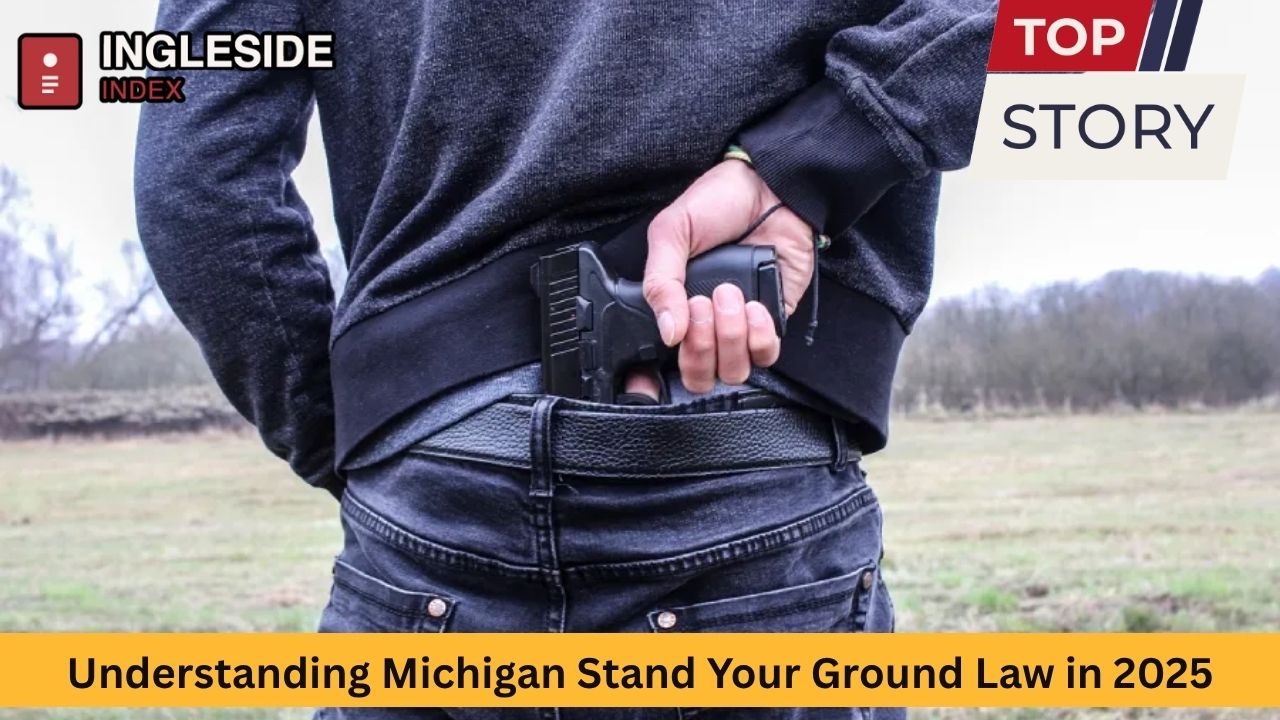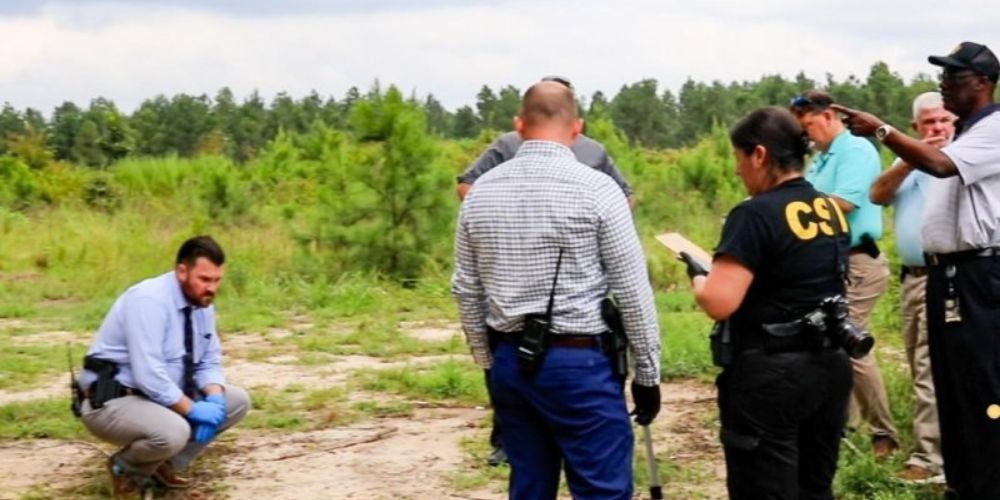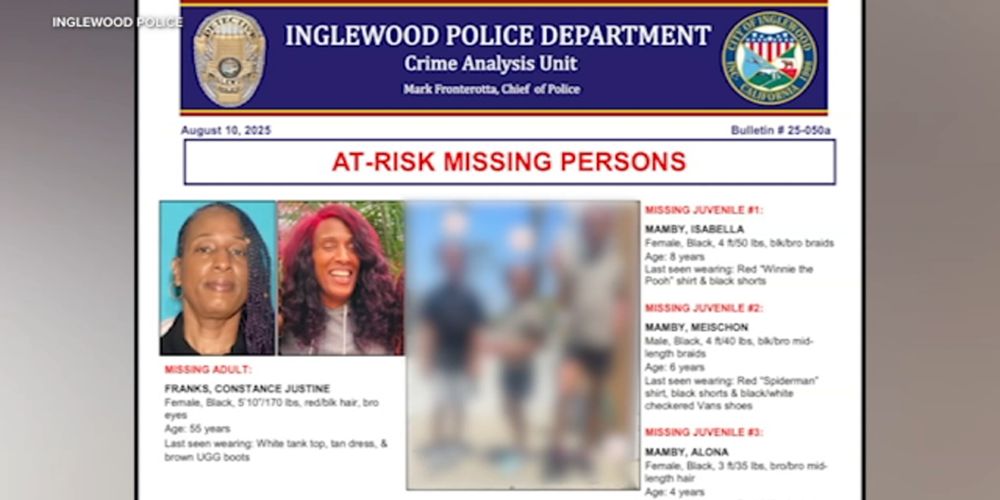Across Michigan’s vibrant cities from Detroit to Grand Rapids, from Ann Arbor to Kalamazoo, the concept of self-defense is a topic that frequently arises in public debate and private conversation. Central to this discussion is Michigan’s Stand Your Ground law—a legal doctrine that, since its introduction, has significantly shaped the way residents and law enforcement approach claims of self-defense.
This comprehensive guide will unpack the origins, structure, real-world application, and future implications of Michigan’s Stand Your Ground law in 2025, providing clarity to citizens, legal practitioners, and anyone seeking to understand their rights and limits under this powerful legislation.
The Legal Foundation of Stand Your Ground in Michigan
Historical Context
Michigan adopted its Stand Your Ground policy in 2006. At its core, this law eliminates the “duty to retreat” previously required in life-threatening confrontations. Traditionally, individuals were expected to leave or avoid danger if possible before resorting to force. The 2006 transformation mirrored a growing national trend, particularly across Midwestern and Southern states.
The Self-Defense Act
Michigan’s Stand Your Ground law is codified in the state’s penal code as part of the Self-Defense Act. Here are the key frameworks:
-
A person not engaged in criminal activity may use deadly force against another if they honestly and reasonably believe it is necessary to prevent imminent death, serious bodily injury, or sexual assault—without a requirement to retreat—provided they are in a place where they have a legal right to be.
-
The doctrine extends to non-lethal situations as well, allowing force to prevent unlawful harm.
Comparing with the Castle Doctrine
While Stand Your Ground applies everywhere a person may legally be—whether standing in a corner café in Traverse City or a grocery store in Lansing—the “Castle Doctrine” applies specifically to homes, businesses, or vehicles. The Castle Doctrine allows residents to use force against intruders without duty to retreat inside their own property.
Key Provisions of Michigan’s Law in 2025
When Can Force Be Used?
Michigan law authorizes individuals to use deadly force without retreat if:
-
The person was in a place they were lawfully allowed.
-
They were not engaged in committing a crime at the time.
-
There was an honest and reasonable belief that deadly force was necessary to prevent imminent harm, death, or sexual assault.
These provisions are seen in action in the diverse neighborhoods of Flint, Saginaw, and Muskegon, not just in an urban apartment but on suburban streets, parking lots, and even public transit stations.
Limits and Responsibilities
Importantly, Stand Your Ground is not a blanket permission to use force freely. Factors that limit the justification include:
-
Provocation: If you start a confrontation, you may not claim Stand Your Ground protection.
-
Illegal activity: The law does not protect those using force while committing another crime.
-
Reasonableness: Police, and ultimately juries, scrutinize whether an average, reasonable person would have felt similarly threatened.
Distinguishing Deadly and Non-Deadly Force
-
Deadly force is justified only when facing threats of death, severe injury, or sexual assault.
-
Non-deadly force may be justified to prevent lesser threats but must still be reasonable according to the circumstances.
The Law in Daily Life
Real-World Examples
Imagine a late-night encounter in Detroit’s bustling downtown or a confrontation in a Grand Rapids shopping district. If an individual is threatened by an aggressor with clear intent to cause harm, they may defend themselves with reasonable force, using deadly force only when necessary, without first needing to flee.
However, in both urban and rural settings across Michigan, police and courts look for evidence of honest belief and reasonableness. For instance, a Lansing jury might hear testimony about whether a shooter truly believed escaping was impossible—and would weigh the credibility of that belief.
The Role of Prosecutors and Law Enforcement
Even when Stand Your Ground could apply, investigations are thorough. Police look for inconsistencies, and if prosecutors believe the law was misapplied, they can bring charges. In 2025, Michigan’s legal system continues to see cases where defendants invoking Stand Your Ground are acquitted, while others are convicted if their belief was not deemed reasonable.
Statistical Snapshot of Stand Your Ground in Michigan
Statewide Trends
-
Michigan is one of more than two dozen states with Stand Your Ground laws.
-
In 2024, statewide, hundreds of stand-your-ground-related cases made their way through courts in cities like Jackson, Novi, Port Huron, and Battle Creek.
-
A notable number of these cases involve disputes escalating from domestic or neighborly disagreements, emphasizing the complexity of applying reasonable force.
-
Over recent years, high-profile cases in Detroit and Flint have made headlines, sparking debate and reflection on how—and when—deadly force should be justified.
Implications for Gun Violence
Research tracking homicide and firearm deaths suggests a mixed picture. Some studies indicate an increase in defensive gun use, particularly in urban centers such as Lansing and Saginaw, while others highlight a rise in overall firearm incidents after the law’s implementation.
For instance, Lansing reported an uptick in cases where self-defense was claimed, corresponding to a broader trend in Michigan urban centers. Other neighborhoods, such as those in Kalamazoo and Ann Arbor, have responded with greater emphasis on responsible gun storage and training.
Use of Extreme Risk Protection Orders (ERPOs)
Following tragic incidents such as the shooting at Michigan State University, the state enacted Extreme Risk Protection Orders (ERPOs) in 2024. In the first year, nearly 400 ERPO cases were filed. The adoption of ERPOs was especially visible in cities like East Lansing and Royal Oak, where community groups and law enforcement quickly began using this tool to temporarily restrict access to firearms for those deemed a high risk to themselves or others.
Perspectives from Michigan Cities
Detroit
Detroit has seen some of the state’s most publicized Stand Your Ground cases, often involving confrontations in public spaces. City authorities have emphasized community education, urging gun owners to understand the full gravity of self-defense claims.
Grand Rapids
In Grand Rapids, local law enforcement has implemented workshops aiming to clarify the nuances of Stand Your Ground versus the Castle Doctrine, particularly targeted at college students and young adults.
Ann Arbor
Ann Arbor’s robust student population means a heightened focus on awareness campaigns. The city’s police department partners with campus security to host seminars involving scenarios and simulations based on real cases.
Lansing
Lansing has been at the forefront of tracking Stand Your Ground cases, working closely with courts to gather statistics and improve understanding of outcomes. The city’s approach balances upholding residents’ rights with a clear commitment to reducing unnecessary violence.
Smaller Communities
Stand Your Ground is not just an urban topic. Towns like Alpena, Marquette, and Alpena have grappled with cases involving disputes over property, hunting incidents, and altercations in recreational areas. Rural residents often seek legal advice on where and how the law applies outside densely populated centers.
Public Opinion and Debate
Support and Critique
Supporters argue Michigan’s Stand Your Ground law empowers law-abiding residents, particularly in high-crime areas such as Flint and Detroit, to defend themselves without bureaucratic hesitation.
Critics, meanwhile, raise concerns about ambiguities and the potential for misuse—pointing to cases where confrontations could have been avoided but escalated due to a misunderstood sense of justification. Community leaders in Pontiac and Saginaw have organized town halls to debate the law’s impact and to encourage neighbors to seek nonviolent conflict resolution whenever possible.
High-Profile Cases
Several high-profile trials have highlighted the complexities of Stand Your Ground in action. These cases, often followed closely by local reporters and the public, have resulted both in acquittals and convictions—driving home the law’s importance and the stakes involved in self-defense decisions.
The Intersection with Gun Ownership and Safety
Surge in Firearm Permits
After the law’s passage and especially following the ERPO implementation in 2024, Michigan cities like Warren, Sterling Heights, and Livonia saw a marked increase in concealed-carry permits. Many residents cited the desire to be legally prepared for self-defense as their primary motivation.
Safe Storage Initiatives
Awareness about responsible gun storage has risen dramatically. The Michigan Department of Health and Human Services reports that the majority of unintentional firearm deaths among children involve weapons stored unlocked and loaded—prompting intense campaigns about safe firearm storage, especially in family homes across cities and townships throughout the state.
Training and Education
Organizations in cities such as Dearborn and Troy now offer regular self-defense law workshops. These programs demystify the process of claiming Stand Your Ground and stress the limits and responsibilities inherent in any use of force.
The Legal Process and Claiming Stand Your Ground
The Role of Jury and Burden of Proof
If Stand Your Ground is used as a defense, the burden rests on the prosecution to prove beyond a reasonable doubt that the defendant was not acting in justifiable self-defense. However, juries in places like Oakland County and Genesee County closely scrutinize whether the defendant’s beliefs and actions truly met the law’s standards.
Steps for Defendants
-
Immediately notify authorities and cooperate fully.
-
Retain legal counsel familiar with self-defense law.
-
Gather all possible evidence (witnesses, surveillance footage).
-
Prepare for detailed inquiry into your motivations and actions.
Civil Implications
Even if acquitted criminally, defendants may face civil lawsuits from victims’ families, especially in contentious cases in densely populated cities such as Detroit and Southfield. It’s vital to understand that criminal acquittal under Stand Your Ground does not shield one from civil litigation.
Stand Your Ground and the Future of Michigan Law
Legislative Evolution
Michigan’s Stand Your Ground law is under ongoing scrutiny. Lawmakers from Lansing to Traverse City regularly propose revisions to clarify ambiguities or address emerging concerns, particularly regarding the intersection with gun safety laws like ERPOs and accidental shootings by minors.
Community Policing and Prevention
More city police departments, including those in Flint, Kalamazoo, and Ann Arbor, now include de-escalation and bystander intervention components in officer training, aiming to reduce situations where deadly force might be claimed or required.
The Role of Data and Research
Universities in Michigan, including the University of Michigan and Michigan State University, are leading research efforts to better measure Stand Your Ground’s impact on gun violence, homicide rates, and perceptions of safety across demographic groups from rural Alpena to urban Detroit.
Practical Guidance for Residents
Knowing Your Rights
-
Carry documentation for any firearm owned or concealed.
-
Learn local nuances in cities and counties, as some municipalities emphasize different aspects of law enforcement policies.
-
Stay informed on legislative updates, as self-defense law can evolve rapidly.
Avoiding Legal Peril
-
Defuse situations verbally whenever possible.
-
Only use force proportionate to the threat.
-
Call law enforcement immediately after any defensive incident.
Special Concerns for Vulnerable Populations
Elderly residents, minorities, and young adults—especially in college towns—are encouraged to participate in educational sessions about Stand Your Ground to avoid tragic misunderstandings and misuse.
Conclusion
Michigan’s Stand Your Ground law in 2025 represents a balancing act between protecting individuals’ right to self-defense and safeguarding communities from unnecessary violence. Its reach extends from the cities on Lake Michigan’s western shore to the farthest corners of the Upper Peninsula, touching lives in every neighborhood, school, and workplace.
Understanding the boundaries, exceptions, and responsibilities embedded in the statute is essential for every Michigan resident. Ultimately, the principle at play is both clear and complex: within the bounds of reason and honesty, you have the right to protect yourself—but with great power comes great responsibility. As Michigan continues to evolve, so too will the laws and practices surrounding self-defense, keeping public safety and individual rights in continual focus.











Leave a Comment